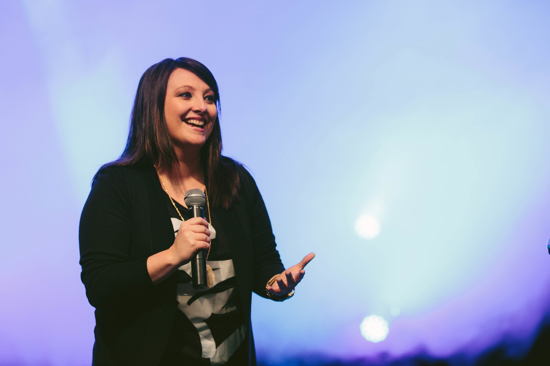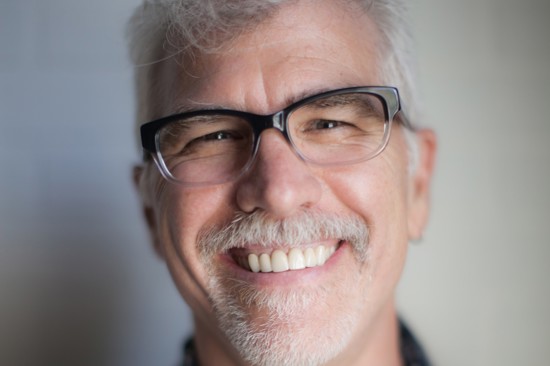Why use our consultancy services?
Our independent reviews offer organisations an objective and impactful assessment, free from internal biases. They offer valuable opportunities to learn, strengthen practices, and ensure future safety.
By demonstrating accountability through an independent review, organisations can foster greater public confidence and trust, showing their commitment to transparency and improvement.
By entrusting the process to accredited professionals with no conflicts of interest, organisations ensure the credibility and integrity of the review, setting a strong foundation for accountability and transformative progress.
"The questions they asked immediately made us look at our policies and procedures and improve what was lacking. A highlight for us was being asked things that might not have crossed our minds.”
The benefits of working with Thirtyone:eight:
Our unique blend of experience, specialised knowledge, and Christian values enables us to make a significant impact in safeguarding.
Knowledge and experience
Our dedicated team have extensive knowledge and experience across various areas of the safeguarding sector, including education, law enforcement, and social care for both children’s and adult services. With over 45 years’ experience, we have supported thousands of organisations to successfully navigate a wide range of complex safeguarding situations, particularly within the charity and faith sector.
Faith specialists
Our faith-based focus provides unique insights into safeguarding within faith context. We have built a breadth and depth of specialist expertise in this area, enabling us to approach faith-based organizations with empathy, understanding, and professional excellence. Our safeguarding work is underpinned by our Christian values, which along with our theology of safeguarding guide our approach.
Independent view
As an independent safeguarding charity, we are committed to speaking the truth and protecting vulnerable people.. We work hard to preserve our independence by making sure no source of influence, power or funding is allowed to become dominant or controlling over the activity and functioning of the charity. Our independent perspective offers organisations objectivity and accountability.

The Stewards' Trust
"The process allowed us to step back and view our safeguarding practices from a broader perspective. We’ve been able to celebrate what we’re doing well, and having done the work that was needed gives us even more confidence that we really are on the right path, maintaining integrity, and genuinely safeguarding the people we serve."
Our work is:
Survivor centred
Our process is survivor-centred, prioritising the dignity, experiences, needs, and wishes of people with lived experience. We keep participants fully informed at every stage, ensuring their consent is given freely, respected and acted upon throughout.
Safeguarding focused
Safeguarding frequently overlaps with areas such as data protection, law, health and safety, and HR. We will clarify the boundaries and direct you to other appropriate sources of help or engage external specialist expertise to combine with our own.
Trauma informed
We recognise that anyone may have experienced trauma or Adverse Childhood Experiences (ACEs). We integrate this understanding into our work to create safe environments, build trust, and empower individuals to share their experiences and point of view with us.
Strengths based
We focus on identifying strengths and positive actions, not just gaps or failures. Using Appreciative Inquiry methods, we ask "What's working well?" to encourage positive change. This approach motivates teams by highlighting successes and building on potential.
Evidence driven
We gather and analyse all relevant information available to us as a non-statutory agency. We use various independent methods to confirm our findings and combine qualitative and quantitative methods to provide a more complete picture and to mitigate any bias.
Quality assured
All our consultancy work is run through a rigorous two-stage quality assurance process. This ensures we have addressed all the scoping points and have drawn clear evidence-based conclusions and sound recommendations to help create safer places for all.
What we consider:
Risk level
We assess whether the risk is current or past/non-recent. This helps us determine the urgency and priority of actions. This includes ensuring people’s immediate safety and ongoing support, addressing transferable risks to other connected situations, and considering the organisation's reputation.
Type of concern
We distinguish between complaints (dissatisfaction with service) and safeguarding allegations (unproven concerns about an individual's actions) to tailor our approach, incorporating organisational policies like Codes of Conduct to ensure concerns are addressed within the relevant framework.
Context analysis
We understand individuals and charities within their broader communities and structures. We use systems thinking to reveal patterns and interconnected relationships, offering a holistic approach to solving problems and making decisions by examining how wider systems interact and influence each other.
What you can expect from us
- Collaborative working
- Clear communication
- Continuous improvement based on previous learning and experience
- Reassurance and support
- Non-judgemental attitude
- Compassion
- Professional, honest challenge
- Trust and appropriate confidentiality
- Integrity and willingness to compromise appropriately
"One of the key benefits of the process was the opportunity to involve a wide range of people within the organisation, including trustees, staff, and volunteers, in safeguarding. We’ve always said, ‘safeguarding is everyone’s responsibility’, but this process meant we were all focused on it at the same time."
Our Process:
Our work usually follows these steps:
1. Getting started
a) Setting the scope or terms of reference:
Before we start any consultancy work, we need to understand the scope of what is involved, and agree some key information, which includes:
- The objectives of the work
- The timescale
- The methodology
- Who is involved and who will receive the reports
- Declaration of any conflicts of interest
- Data sharing considerations
- The costs
All the information is then drawn into a ‘Schedule of Service’, which we will send to the commissioning organisation to formally authorise.
Some commissioners may have existing guidance or policy around the undertaking of such work, which may include specific timescales or processes which Thirtyone:eight will aim to meet.
b) Assigning the ‘worker’
The ‘worker’ is the member of the Thirtyone:eight you will be working with. Once we are clear on the scope of the work, we will assign the project to the best-suited member of our team. We’ll send you their biography, which includes their qualifications, experience and areas of expertise. If you’re happy to proceed, we will arrange an introductory meeting between the commissioner, worker, and their manager to discuss the next steps.
2. The consultancy work
The actual work we do will depend on the context and the details in the scope of work. Each project can look slightly different. However, most work will include the following steps:
a) Information gathering:
We will review the following:
- Safeguarding policy and guidance
- Individual accounts
- Minutes of core group/safeguarding, and/or trustee’s meetings
- Where applicable any former reports, as well as any external communications with external agencies such as police, local authority, or charity commission.
b) Developing a timeline:
We will develop a clear chronology of significant events relating to the case.
c) Fieldwork:
This may look like:
- Conducting interviews with those who have been either directly impacted or who may have valuable information regarding the agreed scope of the case. Interviews are usually online, however, face-to-face interviews can be considered where appropriate.
- Questionnaires or consultations to help draw out relevant information from those connected to the commissioner organisation.
- A site visit.
Where new and relevant information is disclosed during interviews, it may require us to review the original Schedule of Service (in relation to process, timescale and costs). We will do this in consultation with the commissioner. Any changes will be jointly agreed prior to action. A revised Schedule of Service will be shared with the commissioner to have on record.
3. Consolidating the findings
a) Summarising the process and findings:
We will collate the information gathered during the consultation period, and summarise the interviews, a narrative of people’s experiences relating to the case, and the key findings.
b) Content analysis:
We critically analyse the content of our consultation to help draw conclusions and recommendations, as per the scope.
4. Reporting and evaluation
a) Report writing:
After the consultation work, we will write an independent and comprehensive report. This will usually follow our standard report structure:
- Context and introduction
- Scope of work /Terms of reference
- Our methodology
- Information gathered on each point of scope
- Our findings
- Conclusions/summary of findings
- Recommendations
- References
- Appendices
b) Quality Assurance:
Our QA process is a two-stage internal process involving review of the work from two managers who have not undertaken the work, and who can offer an objective view). They assess whether the work and the report have:
- Adhered to stated methodology.
- Addressed the full scope or the terms of reference.
- Identified and addressed all relevant risks.
- Identified good and positive practice.
- Evidenced all findings clearly.
- Made clear, SMART recommendations that will identify key changes and improvements to strengthen safeguarding.
- Met the required professional standard.
This process usually prompts amendments and clarifications to the draft report before submission.
c) Report submission:
The final draft report is shared with the commissioner. Up to two rounds of fact checking will be considered by the worker before finalising the report.
Additional reports, for example, redacted and/or summary reports, can be commissioned to ensure that key participants are appropriately informed of the findings and recommendations. Thirtyone:eight have significant experience of working with those directly impacted by abuse, and are happy to advise on the best ways to work with participants.
Once the report is finalised, it is the property of the commissioning organisation. As the author Thirtyone:eight ask to be consulted regarding any wider sharing of the report. Some organisations wish to publish the report. Thirtyone:eight should be notified about such intention as part of the scoping stage.
All decisions on the editing and distribution of the report are based on what is best for the survivors at the heart of the work.
d) Evaluation:
Thirtyone:eight is committed to learning and improving its services. Therefore, evaluation is a key part of the completion of consultancy work. We ask all commissioning organisations to complete an evaluation within a month of finalising the work.
All feedback is considered and reported to our senior team and the Board.
What other people say about us

"You are the best money we spend as a church, we don't know what we would do without you!"

"Thank you for everything you continue to do for us, I thank God for you all and the aide you have given me over my career."

"To be honest, I wouldn't do this job without the support of Thirtyone:eight"
